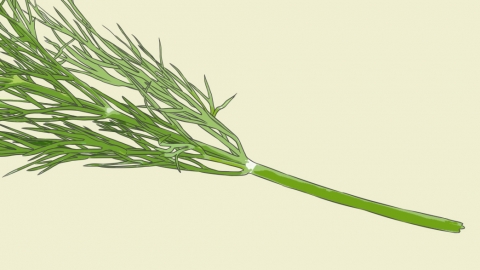Can I eat fennel during the postpartum confinement period?
Generally speaking, postpartum women can consume fennel during the postnatal confinement period, but should do so in moderation. Detailed explanations are as follows:

Fennel has a warm nature and possesses functions of warming the kidneys to dispel cold, regulating qi, and harmonizing the stomach. Postpartum women often have weak bodies and are prone to conditions such as deficiency-cold of the spleen and stomach or indigestion due to insufficient qi and blood. Moderate consumption of fennel can help alleviate discomforts like abdominal cold pain and stomach distension through its warming properties. Additionally, fennel oil can promote gastrointestinal motility and help relieve common postpartum constipation. From a nutritional perspective, fennel is rich in nutrients such as vitamin C, calcium, and iron. Vitamin C aids wound healing, calcium helps replenish calcium loss during lactation, and iron helps improve postpartum anemia. Moreover, the unique aroma of fennel can stimulate appetite, helping the mother better absorb nutrients during the postpartum recovery period. As a common food ingredient, fennel can be prepared by chopping and making dumplings, boiling soups, etc., which not only diversifies the flavor of postnatal meals but also provides gentle nutritional support for postpartum women.
Although fennel is beneficial for postpartum women, excessive consumption may cause problems such as heatiness and constipation. This is because fennel has a drying and heating nature that may consume intestinal moisture, leading to intestinal dryness. Furthermore, postpartum women have weak bodies during the confinement period; consuming excessive heating-type fennel may accelerate the depletion of qi and blood, further weakening the body. Therefore, postpartum women should consume fennel in moderation and avoid excessive intake.






